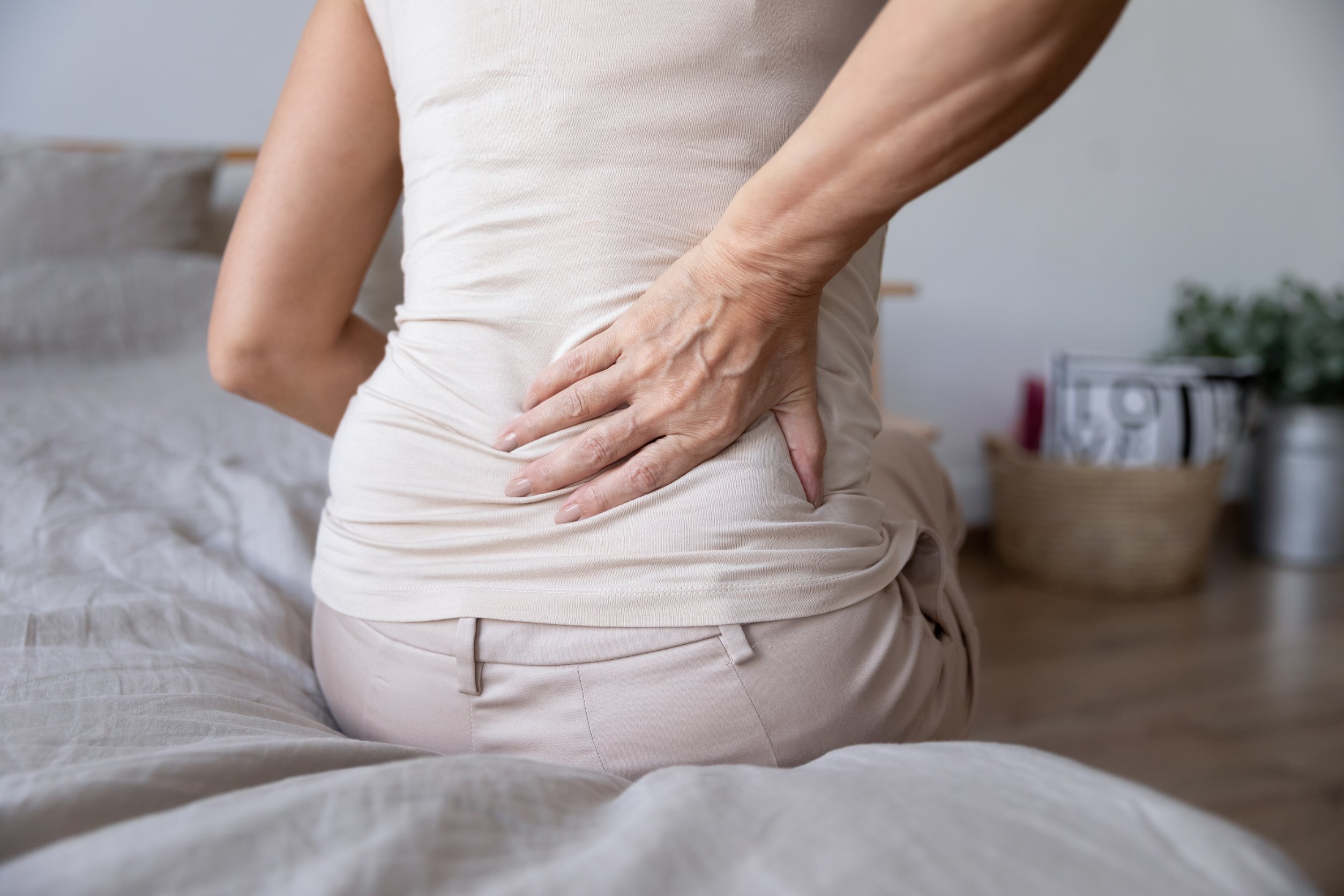”Question: What are the best ways to ease pain before I sleep to improve my sleep quality?
Reading Time: 5 Minutes
MWi Hack:
- Learn how to improve sleep, even with chronic pain and how improved sleep can lessen pain levels.
MWi Summary:
- Poor sleep is linked to increased pain intensity, fatigue, and depression.
- Talking to your doctor can help you come up with a plan to improve pain and sleep.
- Here are a few variables to consider to improve sleep:
- Check your sleep position
- Using a good pillow with enough head cushion
- Stick to a regular sleep schedule
You’re tired and would like nothing better than to crawl into bed and descend into the comforting arms of a deep sleep. But if you are one of the 58.9 percent of adults who experienced pain of any kind in the past three months, according to the National Center for Health Statistics, that’s not so easy. And if that pain is chronic, lack of restorative sleep can become a serious health matter. “Dysfunctional sleep leads to high blood pressure, cardiac problems, and cognitive issues,” says W. Christopher Winter, MD, President of Charlottesville Neurology and Sleep Medicine in Virginia.
Sleep Deficiency Affects Pain Perception
Equally important for people who suffer from chronic pain, lack of sleep can make perception of pain more intense, according to a study published in June 2019 in the medical journal Neuropsychopharmacology. Another article in the Journal of Clinical Sleep Medicine reported that poor sleep is associated with increased pain intensity, fatigue, depression, and difficulty in daily functioning in people living with rheumatoid arthritis (RA).
So, how can you get some z’s when pain is your constant companion?
Talk to Your Doctor About Sleep Problems
If you haven’t already done so, get a full assessment from a healthcare provider, in particular, a pain management specialist or physiatrist, if there are any in your area. It is important to know the source of your pain, as the treatment may vary considerably based on the cause of the pain. They may also recommend physical therapy. You can find a specialist via your primary care physician, or using an online locator tool such as the one at U.S. News & World Reports.
In the meantime, here are eight ways to help improve slumber that is upset by chronic pain:
1. How Do You Sleep? Check Your Sleep Position
You want to keep your body in the most neutral position as possible. “I generally don’t recommend that anybody sleep on their stomach because that causes your neck to turn and can cause shoulder and upper back issues. For lower back pain and hips, side lying or on your back can be good. Bend your knees and put a pillow between them,” recommends Alexander Garreau, DPT, in the department of physical therapy at Rush University Medical Center in Chicago. If you are side lying, be sure your hips are aligned and not twisting over your body.
2. What Is Your Bed Like? Adjust the Mattress if Needed
Is your mattress triggering pressure points on your body? If so, use pillows to get your feet up or support your back or slip in between your knees. Sometimes hugging a full body pillow helps. If you want, you can invest in an adjustable bed that can mechanically get you into a comfortable position.
Also, mattresses need to be changed every 7 to 10 years, says Houman Danesh, MD, director of integrative pain management for Mount Sinai Hospital in New York City. “A lot of people are sleeping on mattresses that are 20 to 30 years old. These don’t help support your back or your neck when you’re sleeping,” he says. Then, pain makes it difficult to sleep, which leads to increased pain, causing more sleep disruptions, starting “a horrible cycle,” according to Dr. Danesh.
3. Are You Using a Good Pillow? The Head Cushion Is Critical
Your pillow should support your head in a way that keeps your neck in a neutral position — there is no inflection down or up. “Your neck should be level with your chest,” says Danesh.
4. Have You Prepped for Comfortable Rest? Apply Heat or Cold Packs on Pain Points Pre-Sleep
Or take a warm or cool shower. Hot versus cold is based on personal preference. Warming or icing can help reduce the swelling or inflammation that cause pain. Apply for around 15 minutes, checking skin to make sure it is not being damaged due to extreme temperatures. Never fall asleep on a hot or cold pack.
5. Assess Your Mindset: Practice Mindfulness, Meditation, Tai Chi, or Gentle Yoga
There is a psychosocial aspect to pain. “When you’re feeling stressed or anxious, it increases your sensitivity and lowers your threshold to your chronic pain. And it’s going to take less to trip those same sensors,” says Dr. Garreau.
Research published in the Malaysian Journal of Medical Sciences backs up that theory as it found that stress adds to pain perception. However, a study published in August 2019 in the journal Pain Reports found that practicing mind calming exercises can help you manage the pain experience.
These practices can also open up your breathing, Danesh adds. When you are in pain a lot, you tend to do shallow breathing: “This lack of oxygen increases lactic acid buildup in your muscles, which causes more pain. Deep breathing techniques can help eliminate that part of the pain.”
Dr. Winter, author of The Sleep Solution, adds, “There is a lot fear when it comes to pain. Mind-body work can help you manage that fear, which may lessen the experience of pain.”
6. Stay Regular: Stick to a Sleep Schedule
Unfortunately, when you are in pain, your instinct may be to sleep and nap a lot as an escape. But there is only so much sleep your body can sustain. If you try to sleep too much, you are only setting yourself up for a fractured cycle that is neither restorative or effective. “Go to sleep and wake up within an hour of the same time every single day, even on the weekends. If you need naps, take one or two short ones before 2 p.m. or 3 p.m.,” says Danesh.
7. Mind Your Meds: Be Careful With Pain Medications
If you have been prescribed pain medications, know that there are some that can interfere with sleep — either falling asleep or staying asleep. Have a thorough discussion with your physician about the pros and cons. “Pain medications can sometimes put you between a rock and a hard place. You don’t sleep well without them but sometimes you can’t sleep with them. Some may make you groggy but then you don’t stay asleep, as sedation and sleep are not the same thing. Some can interfere with breathing. Medications are not a perfect solution. If you do decide to take them, talk to your doctor immediately if you experience side effects,” warns Winter.
8. Don’t Forget Best Practices: Follow Sleep Hygiene Guidelines
The same steps that help pain-free people sleep will help you too. Danesh recommends:
- Avoid caffeine or alcohol late in the day.
- Don’t eat large dinners.
- Limit use of phone, TV, computer and other screens a few hours before bedtime. The blue light can interfere with sleep.
- Sleep in a cool, quiet room.
- Don’t strenuously exercise right before bed. Try gentle stretching instead.
- Get bright natural light exposure during the day. Sunlight helps reset your circadian rhythm which helps you sleep.
MWi would like to thank Beth Levine for her expert insights that we were able to share with our community. Click the button below to read the original article:






